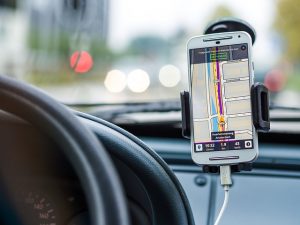
The Supreme Court held that the drivers who provided their services through the Uber app were workers and therefore entitled to the National Minimum Wage, paid annual leave and other protections.
The Supreme Court decision
The Supreme Court did not accept that Uber acted as an agent for the drivers.
The Court found that there were a number of elements of control over the drivers by Uber which meant that the drivers were workers rather than independent contractors.
The legal definition of worker
The person must be obliged to provide work or services personally rather than send someone in their place.
The person must also not be providing work or services as a business. This means that the person must not be in business themselves but working for others. Whether the person is working for themselves or others will depend on how independent they are and how much control is being exerted over their work.

Control over the drivers
The Supreme Court approved key findings of the Employment Tribunal pointing to the drivers being workers. These findings are, as follows:
- Uber sets the fare and drivers are not permitted to charge more than the fare calculated by Uber.
- The contractual terms for which the drivers perform their services are imposed by Uber.
- The driver’s choice about whether to accept journeys is hindered by Uber. For example, Uber logs off the driver if too many requests are declined.
- Uber exercises significant control over the way in which drivers deliver their services, such as the rating system for drivers.
- Uber restricts communications and information passing between drivers and passengers.
Looking beyond the written contracts
The Supreme Court made it clear that it is wrong to treat the written contracts as a starting point when determining whether a person is a worker.
In worker cases you need to look at the whole picture and the reality of the situation. This, according to the Supreme Court, is because of the unequal bargaining power between individuals and organisations which control their work, and taking the wider approach is necessary to protect statutory rights.
Working time
The Supreme Court also held that the drivers were working when they switched their apps on in the relevant territory and were ready and willing to accept trips – not just when they were driving passengers.
Implications of the decision
The decision is helpful in re-emphasising that when determining work status the Courts must look at the reality of the relationship rather than focus on the contractual documentation.
However, it is important to stress that the decision is based on Uber’s very specific operating model. Each case is going to depend on its facts and the arrangement between the individual and the organisation.
Changes
In July 2017 Matthew Taylor published his Good Work report.
In the government’s Good Work Plan, the government proposed, among other things, to clarify worker status and introduce a new single labour market enforcement body to ensure workers’ rights are properly enforced.
If you need any advice on employment law please contact me on 020 3797 1264.

